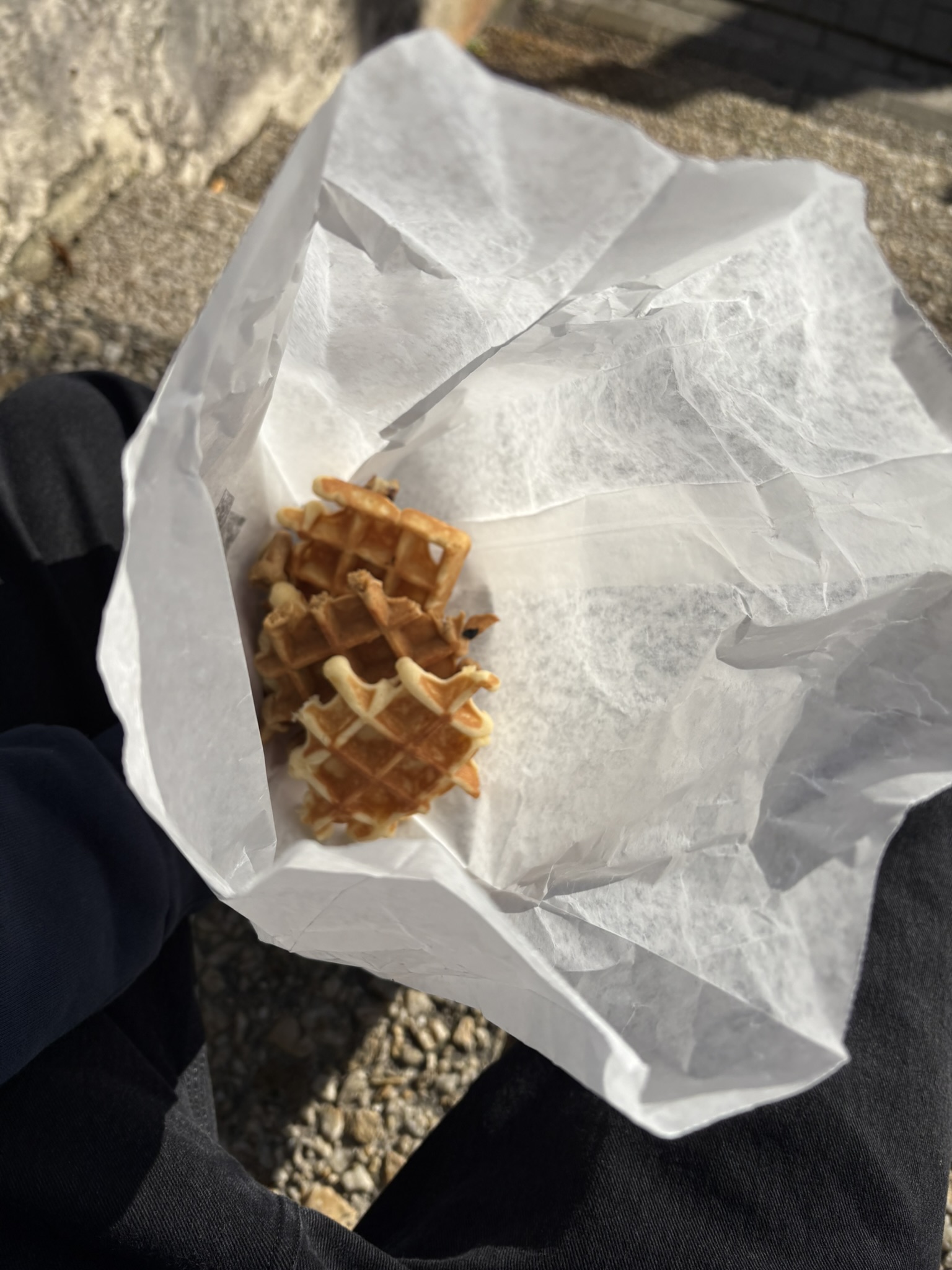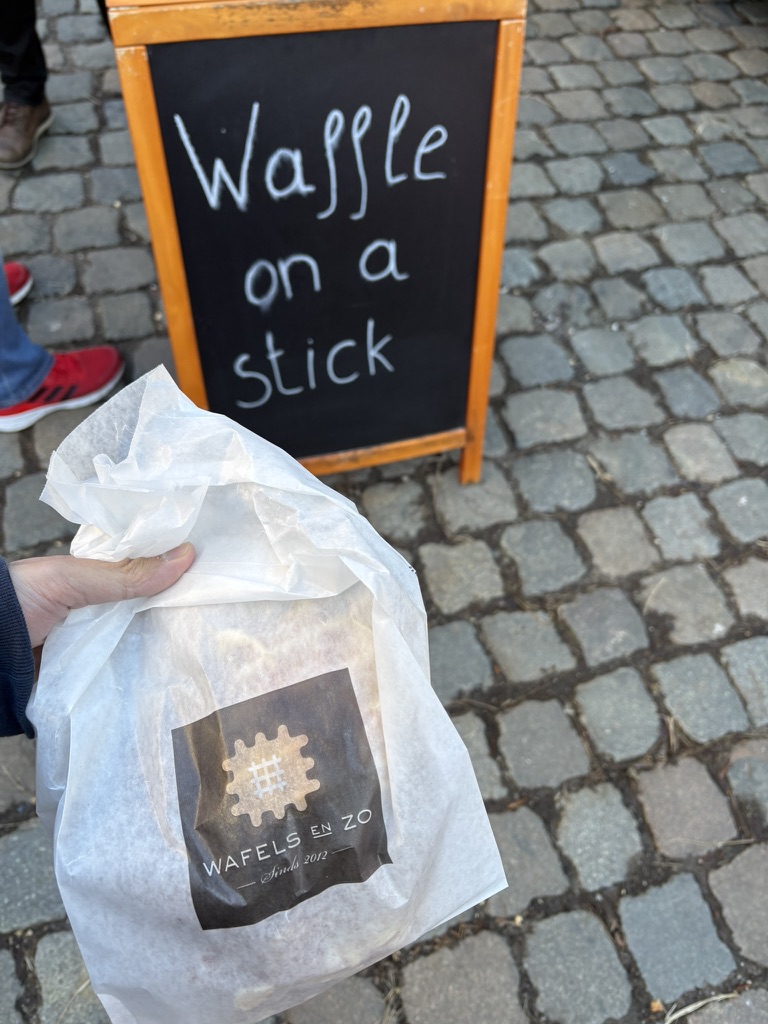FOSDEM: open-source, waffles, and beer
I have experienced conferences before; I have experienced developer workshops; I have also experienced small meetups; what I never had experienced was FOSDEM, or the way I see it, Comic-Con for open-source people. FOSDEM (Free and Open Source Developers’ European Meeting) is an annual event organized by and for people involved with open-source software in some capacity. The event attracts 1000s of developers from around the world to enable free-flowing discussions on open-source software over a pint of beer or some Belgian waffles. I was privileged enough to be able to travel to Belgium to take part in these discussions. The whole conference offers talks, booths, devrooms, fringe events (which are conferences of their own), and even “after-parties” (post-conference socials) (at this point, I won’t be surprised if there were after-parties for the after-parties).
I planned on attending two fringe events, the main conference, and two post-conference socials, but things don’t always go as planned, do they? I arrived in Belgium on the 29th evening and reached my hotel at 6ish PM after fighting with Vodafone UK for an hour at the train station. Three people from ARC (David, Matthew, and I) planned on attending CHAOSSCon, a conference discussing open-source project health metrics and tools. David and I had the same train, and Matthew was arriving a bit late, which meant David and I had some free time to kill before dinner. As any non-Belgian human in Belgium would do, we started hunting for waffles, which were our first meal in Belgium. We still had some free time on our plate, and to keep ARC’s social hour traditions alive, we spent all of it playing Fussball in the hotel lobby. To end the day, we chatted over “distributed” dinner (found a food court) and some Belgian beer once Matthew arrived, and this recharged me for the next day - CHAOSSCon.
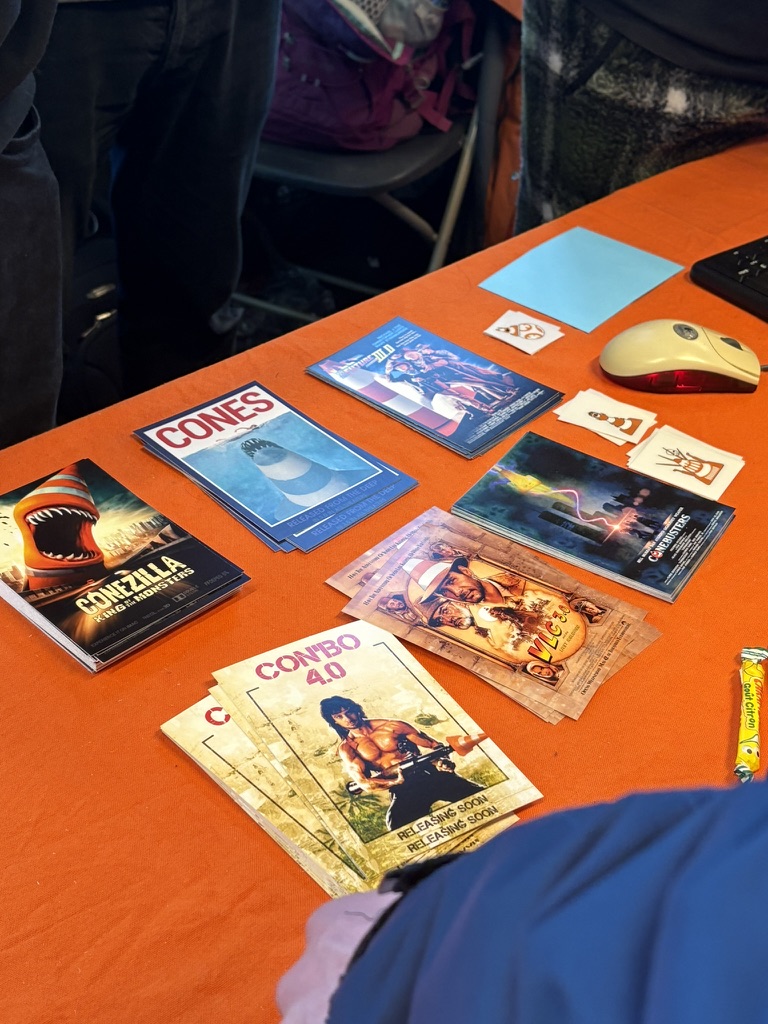
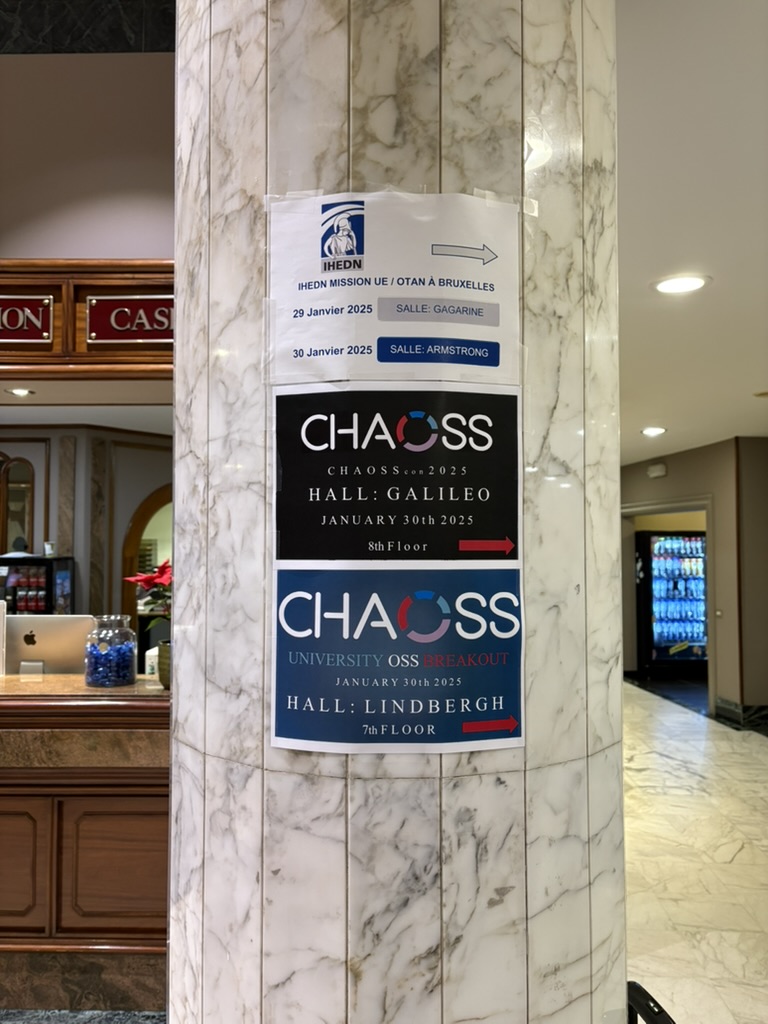
CHAOSSCon, or Community Health Analytics in Open Source Software Conference, was a one-day-long focused event highlighting the importance of metrics and tools used to measure the health of open-source ecosystems, including ways of preventing and fixing damage. The conference brought together the most diverse set of people to discuss open-source under one roof. I met people from big tech like Google and IBM, banks like ING, independent consultants and activists, and people from academia like the CERN’s Open Source Program Office (OSPO) and us, Research Software Engineers from UCL’s ARC. The conference made me realize that open-source requires much more than just developers or programmers to sustain itself in the long run. I absolutely enjoyed Katie McLaughlin’s “Who does the dev? or: How we failed to make a taxonomy of open source contribution.” The talk focused on how non-code contributions are often swept under the rug by popular metric systems (such as the contributor’s dashboard in GitHub) and how that is harmful to open-source ecosystems. Apart from the fantastic topic, Katie’s delivery style was very engaging, and I genuinely enjoy talks that are presented in a unique, non-traditional way. The last unique non-traditional talk I attended was at a FOSSUnited meetup in New Delhi, where a speaker took us through her journey in open-source through the perspective of her pet cat. I equally enjoyed George Link’s “Analyzing Risk from an OSS Project Health Perspective - Tools, Traces, and Threats,” a talk showcasing how industries use health metrics to decide if they want to depend on an open source software. Needless to say, I met some incredible people, but I (and the ARC people) were particularly interested in learning how industries sustain the “giving back” or the working on open-source software culture, both financially and socially. My main highlights from the coffee table discussions came from conversations with Tim Bonnemann from IBM and Giacomo Tenaglia from CERN regarding their organizations’ strategies to promote open-source contributions.
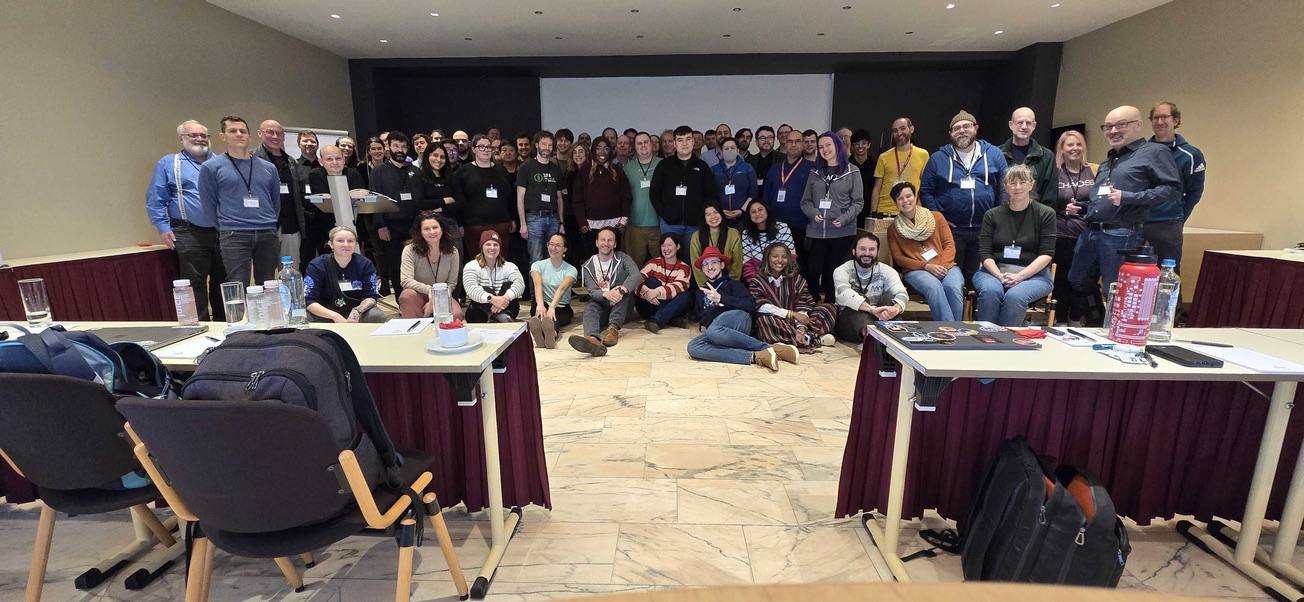
CHAOSSCon exhausted me. The discussions, talks, and breakout sessions were incredible, but there was no space for rest. Given that the conference had no parallel activities, it felt natural to sit in one room for the entire day and only move out for breakout sessions. This decision to sit in one place throughout the day made me leave the post-conference social early and go straight to my hotel room. To recharge for FOSDEM, I decided to skip the second planned fringe event, the EU Open Source Policy Summit, the next day and instead work on my ARC projects while chilling in my hotel room, but something wasn’t right. I couldn’t just sit in my hotel and work, given that I was in a new country, but I didn’t want to go out and roam during work hours. I found an interesting hack to solve my dilemma: go to another country. Luxembourg, the capital of Luxembourg, a small (but RICH) landlocked European country, is apparently just 3.5 hours (and €10 one way) away from Brussels. Going to Luxembourg meant that the round trip would take 7ish hours, precisely how many hours I work (do you see where I am getting with this). I decided to take my laptop on the train, work, step into a new country for lunch, roam around, get back on the train, and work. Everything went according to the plan, and I saw some of Luxembourg. My short review of the country would be that it is clean, efficient, beautiful, rich, but boring.
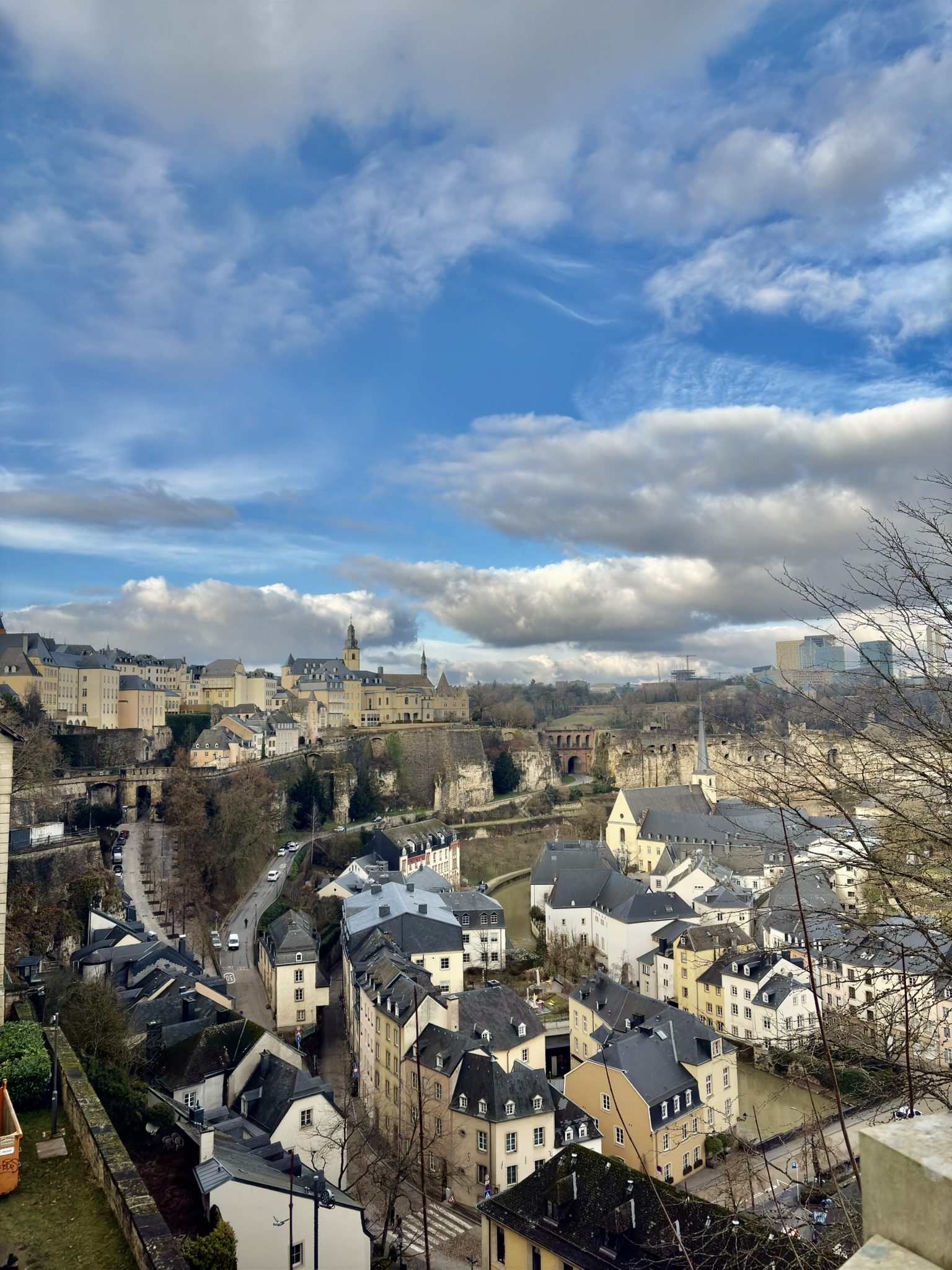
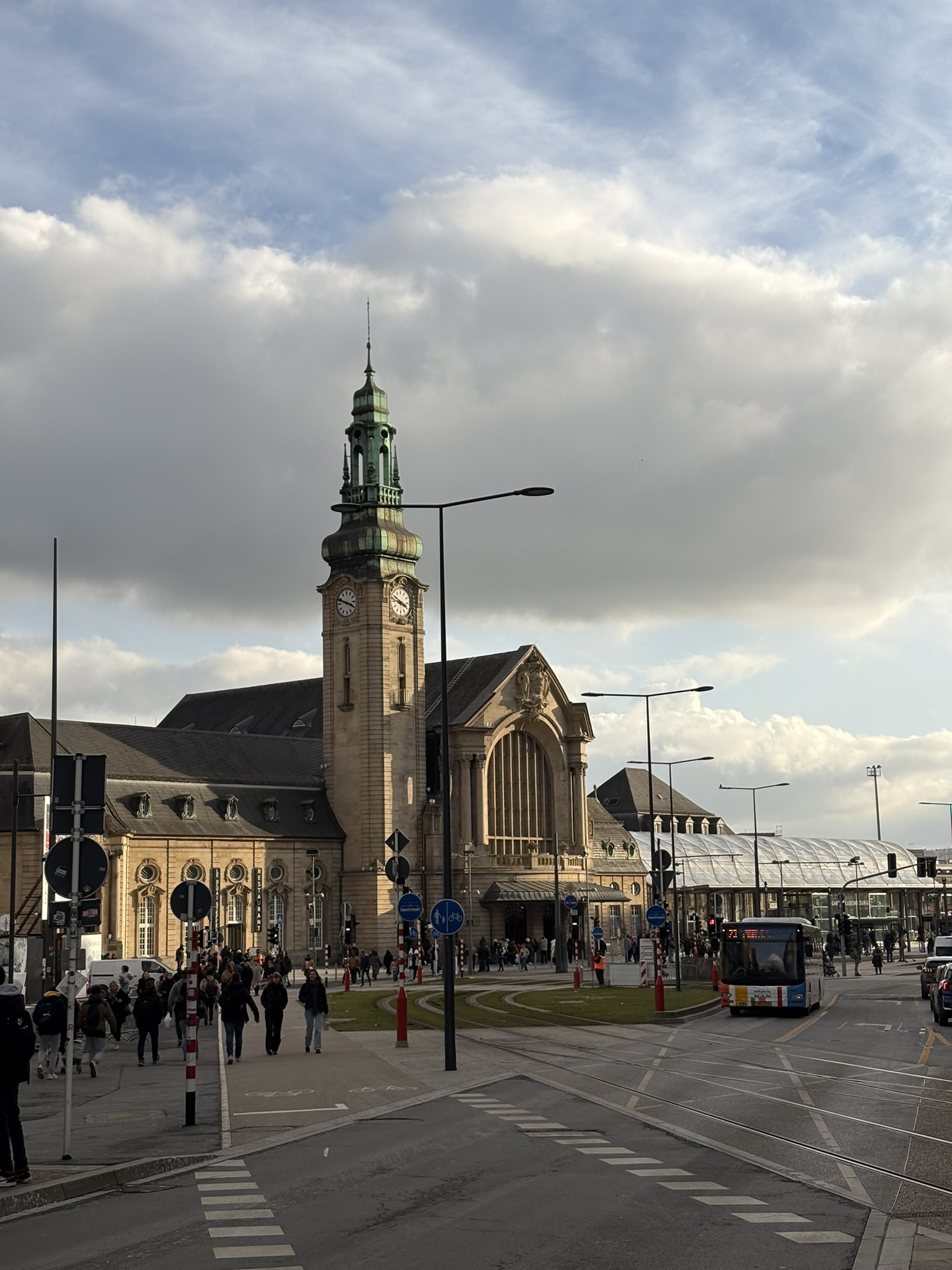
I also had a side quest for this trip - visiting a Burmese noodle place in Antwerp. You see, Burmese food places are rare (for better perspective: the entirety of Switzerland has just one Burmese restaurant; you can only find 4-5 Burmese places even in big metropolitan cities like London and New Delhi), and my Burmese-Chinese girlfriend (who recommended me this place) would have revolted against me if I skipped this opportunity. Considering that the next two days will be busy, I decided to visit Noung Inle, a traditional Burmese noodle place 20 minutes from Antwerpen-Centraal, on the evening of the 31st. Once back in Brussels, I immediately left for Antwerp, and over the next 3 hours, I had the best Burmese food I have ever had (sorry, Mel). I won’t bore you with the details, so here is a picture of their Shan noodle soup and coconut pudding (along with pictures of Antwerp at night) -

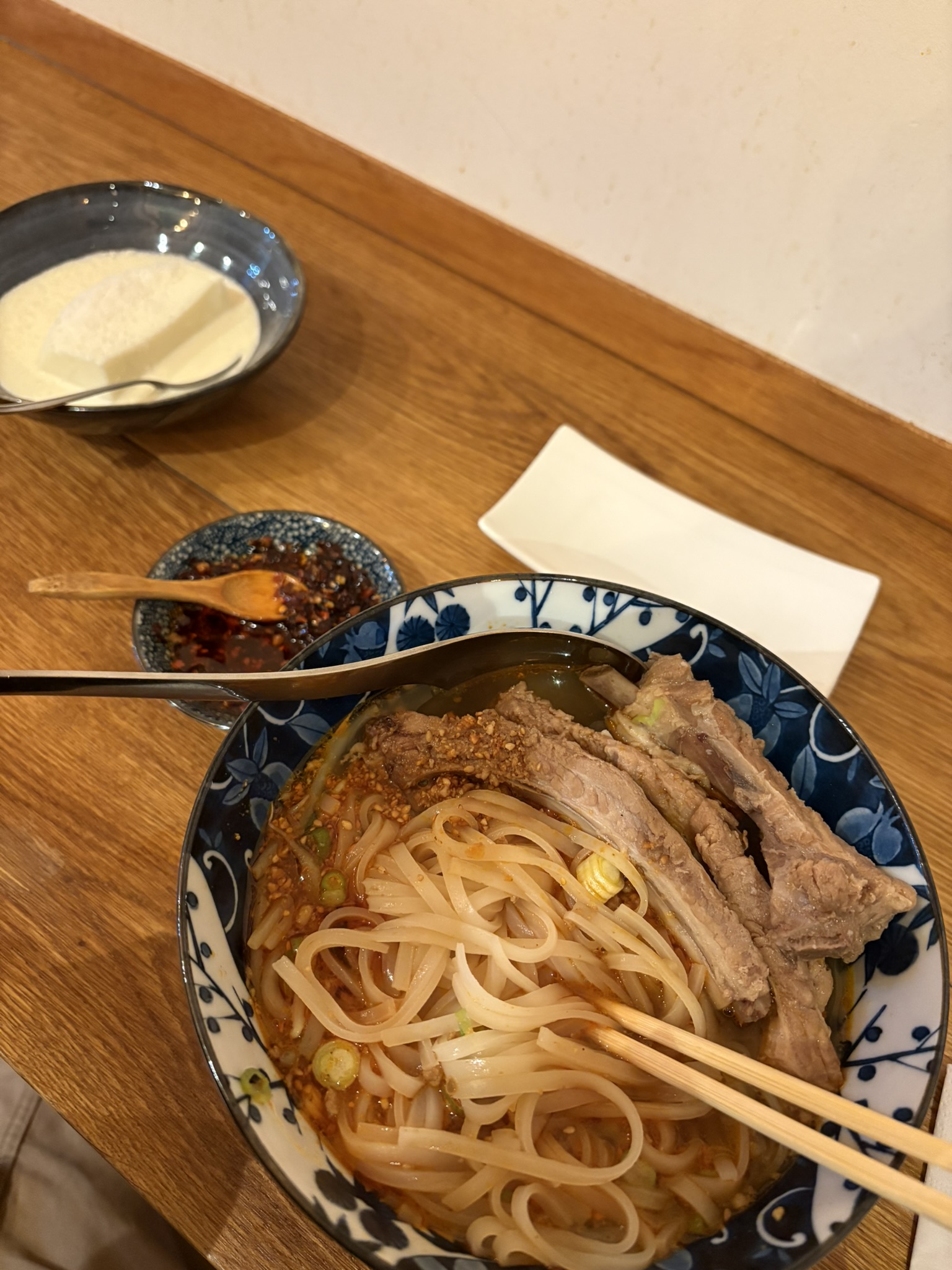
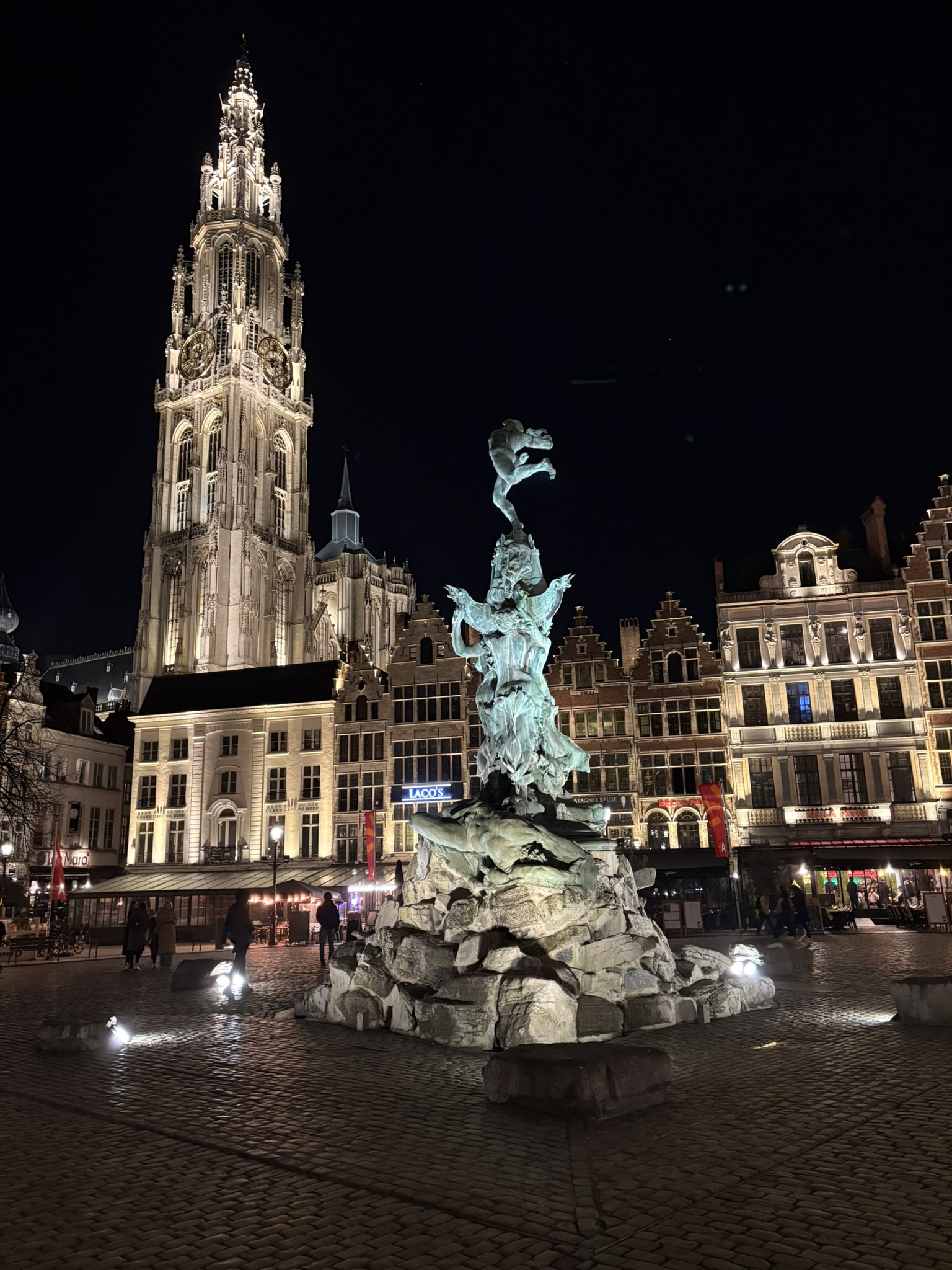
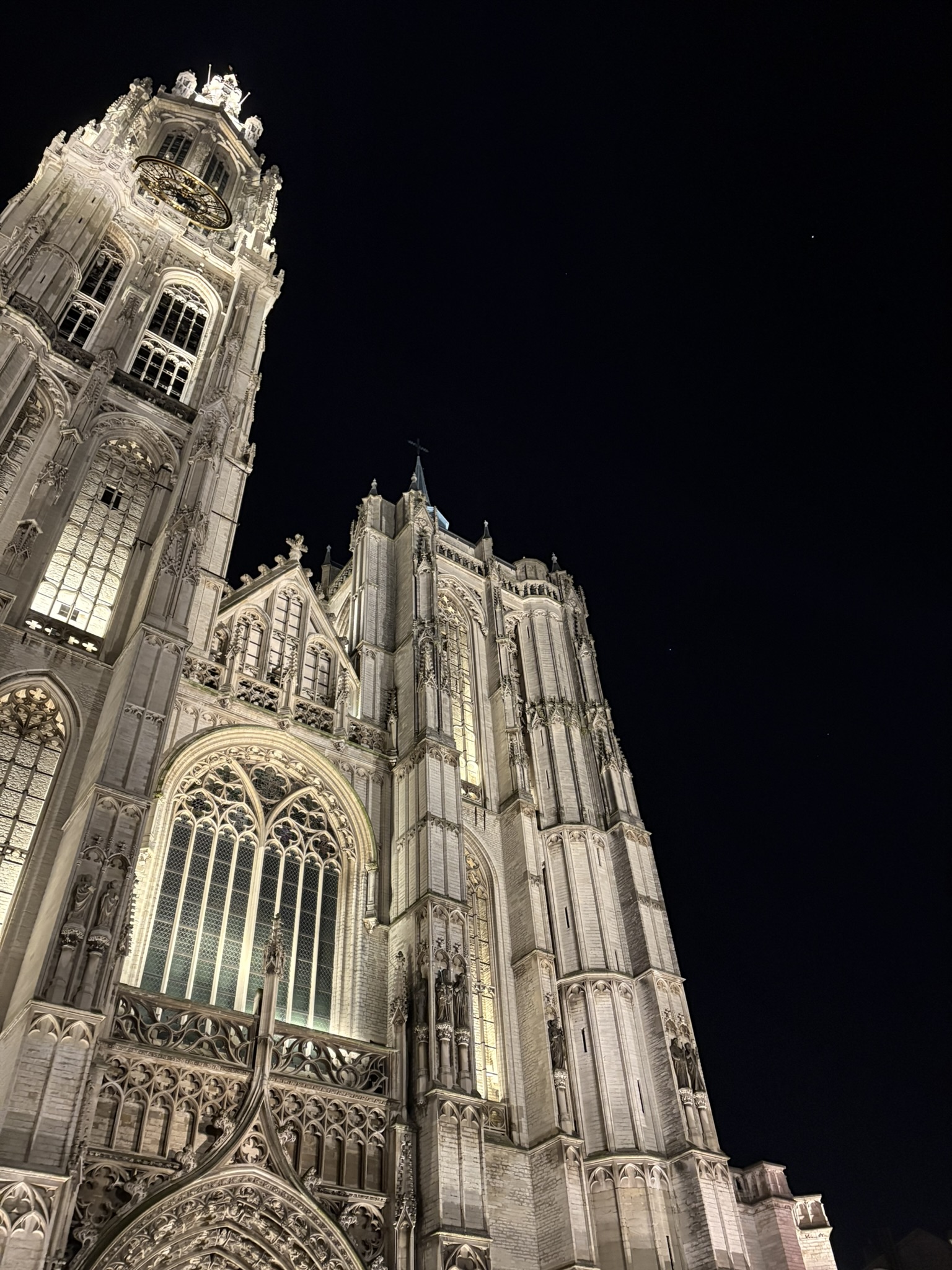
I do know some Burmese phrases, but I was too scared to order in Burmese, so I ended up saying bye in Burmese (and leaving them in a state of confusion - they probably remember me as the guy who talked and ordered in English and said bye in Burmese?).
The D-Day was here, the actual FOSDEM conference, and being a very responsible person, I overslept. I had everything planned perfectly, but I missed one parameter: the conference was on a weekend, and my alarms don’t ring on a weekend. After a late start, I took a long and packed bus ride to the venue, heard people talk about software on the entire journey, and got off to witness open-source in all its glory. My first impression? This does not look like a conference. The venue was really spread apart. The conference was distributed in different buildings, and every floor of a building had different booths and devrooms. It took me some time to process all of the information, and a free cookie from Mozilla definitely helped (see below). I went through the entire venue once, made a mental map, and then pulled out the talks I wanted to attend. First up on my list was Tool the Docs devroom. I have always appreciated good documentation. I know how hard it is to write good documentation and how often the skillset of a technical writer is overlooked by developers, so I decided to attend a few talks in the Docs devroom, which included my highlight of the day - “Patterns for maintainer and tech writer collaboration.” I spent most of the remaining first day in the Open Research devroom, but I would occasionally go out and wander around. I roamed the entire venue multiple times on both days, but I am sure I would have missed a few things because there was so much to do and so little time. My highlights from the open-research devroom were “Preserving LHC Analyses with Rivet: A Foundation for Reproducible and Reusable Particle Physics Research,” “How Open-Source Software is Shaping the Future of Healthcare,” and “Research Software, Sustainability, and RSEs.” Besides the talks, the sheer amount of stickers and booths amused me. My favorite booths were CERN OSPO (who gave me a cute alum pin after I told them I worked there briefly), Software Heritage (with whom I had some pleasant conversations), and Weblate (with whom I discussed Scientific Python’s ongoing efforts to translate Python documentation). Unfortunately, there was no Google Summer of Code booth this year, but I met Stephanie Taylor and talked about how the program was a pivotal moment in my programming journey and how I have been part of it for the past 4 years (always good to appreciate people for the work they do)! I had planned to go to 2 “after-parties” - Linux Foundation drinks and Google Summer of Code meetup - but given that they were far from the venue, I had socialized enough, and the ARC team was getting pizzas from a place nearby, I decided to switch my plans and have a pizza.
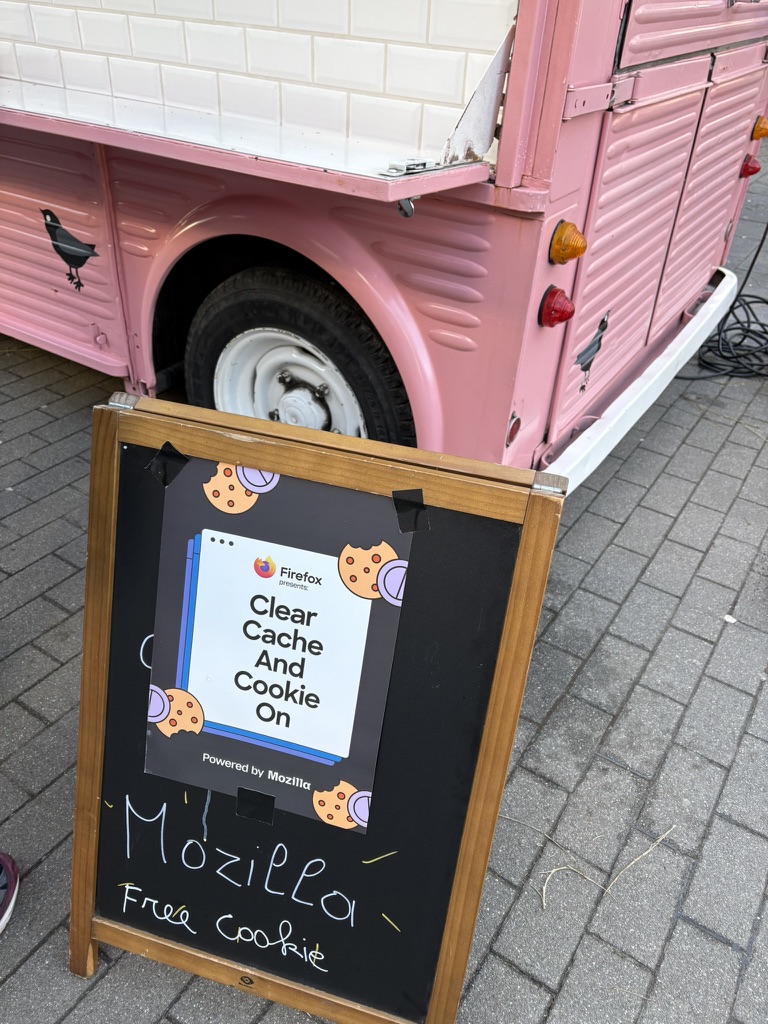


The second day was much more relaxed as I already knew my way around. The more conferences I attend, the more I prefer talking to people over attending talks. Moreover, most of the talks I attend are the ones where I want to talk to the speaker after their talk. FOSDEM did not disappoint in terms of networking at all. It is unbelievable how, at FOSDEM, you can bump into strangers with whom you have so much in common. I bumped into Abhishek Dasgupta from Oxford University’s RSE group on my second day. It was funny how I was walking, saw a familiar face, stopped, and asked him if he worked at Oxford. We had a delightful conversation and then parted ways to attend more talks. Subsequently, while aimlessly looking at the booths, I saw someone wearing a CSCS (Swiss National Supercomputing Centre) hoodie, and in the exact same fashion, I asked if they worked at CSCS. It turns out that they were Nur Aiman Fadel, the head of Scientific Computing at CSCS. They recognized my CMS hoodie and pointed out how I was the first person at the conference to acknowledge their CSCS hoodie. It was intriguing how our work had so many intersections (including common colleagues!), but we had never met each other. Apart from talking to people, eating waffles, and collecting more stickers, I spent most of the second day in the HPC, Big Data & Data Science devroom, where my favorite talks were EuroHPC Federated Platform’s infrastructure by Henrik Nortamo and an introduction to HPSF by Gregory Becker. After the talk, we discussed the idea for the UK universities to get access to the platform using Federated identity and Single-Sign-On. Though they were very open to such an idea, I haven’t followed up yet.
FOSDEM did change my perspective on open-source, making it more holistic and inclusive. I will encourage everyone involved or wanting to be involved with open-source software to attend FOSDEM at least once. With the end of FOSDEM, I concluded my Brussels trip (with side quests to Antwerp and Luxembourg), adding two new (13th and 14th) countries to my travel journal. I have now returned back to my normal life and I hope to attend the conference again next year.
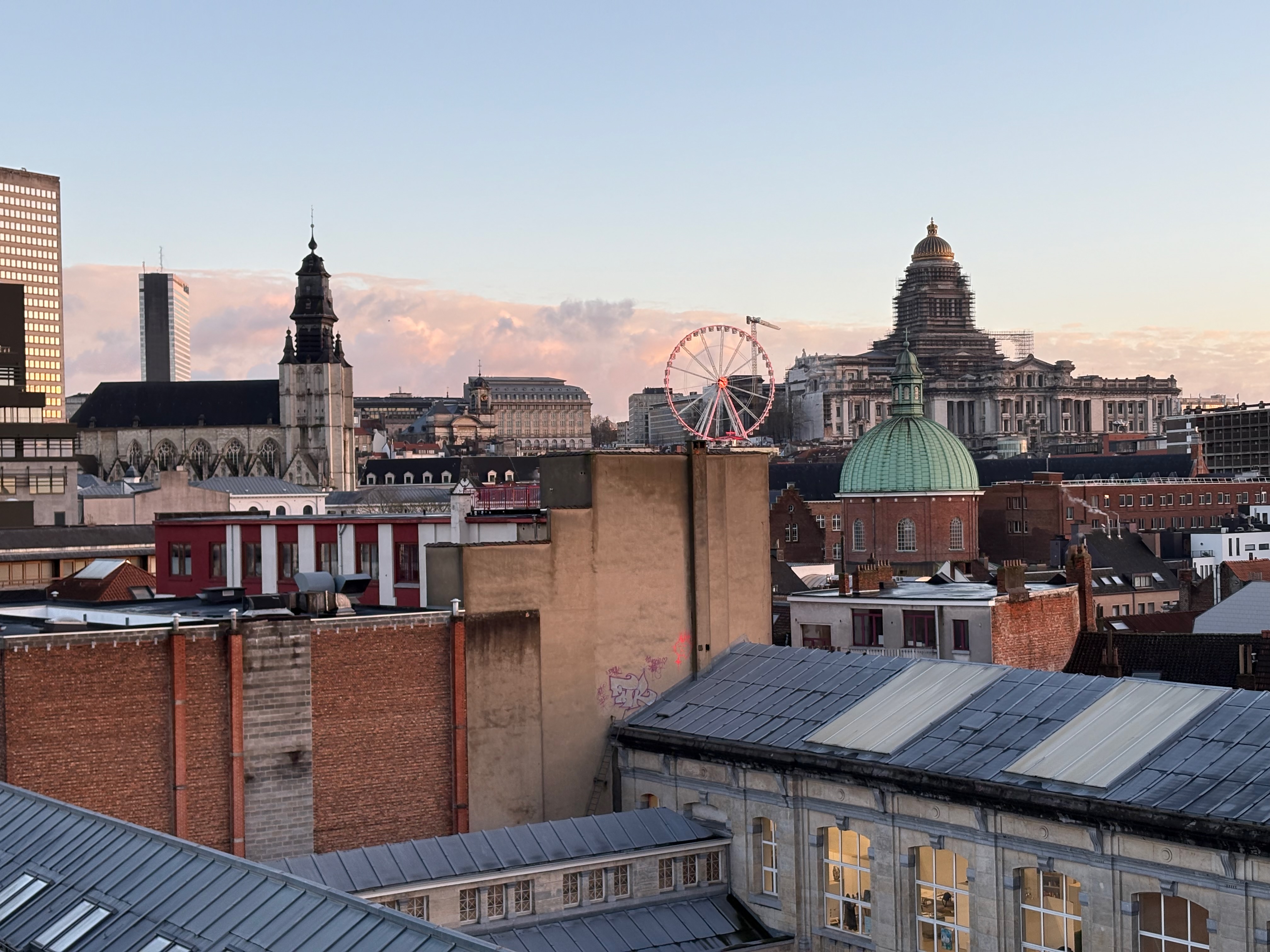
Bonus: People here might not know (how will you? I wrote the last blog in 2023), but I have developed a sweet tooth after moving to Europe. The sweets in India are great, but they are a bit too sweet for my liking. On the other hand, European sweets hit the right spot (especially tangy-sweet desserts, like one of my favorites, Tarte au Citron). Given that I was in Belgium, I obviously couldn’t resist having waffles - choco chip waffle, choco stick waffle, vanilla waffle, waffle with syrup, waffle on a stick (?) - you name it and they have it. Don’t tell my mom, but my lunch on the second day of FOSDEM was a bag of waffles (how can I say no to a bag of 7-8 randomly picked waffles being sold for €6.5).

